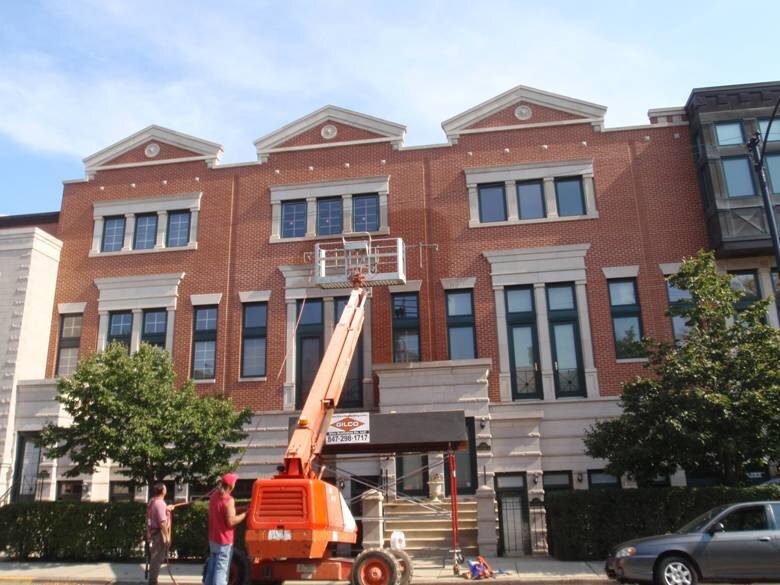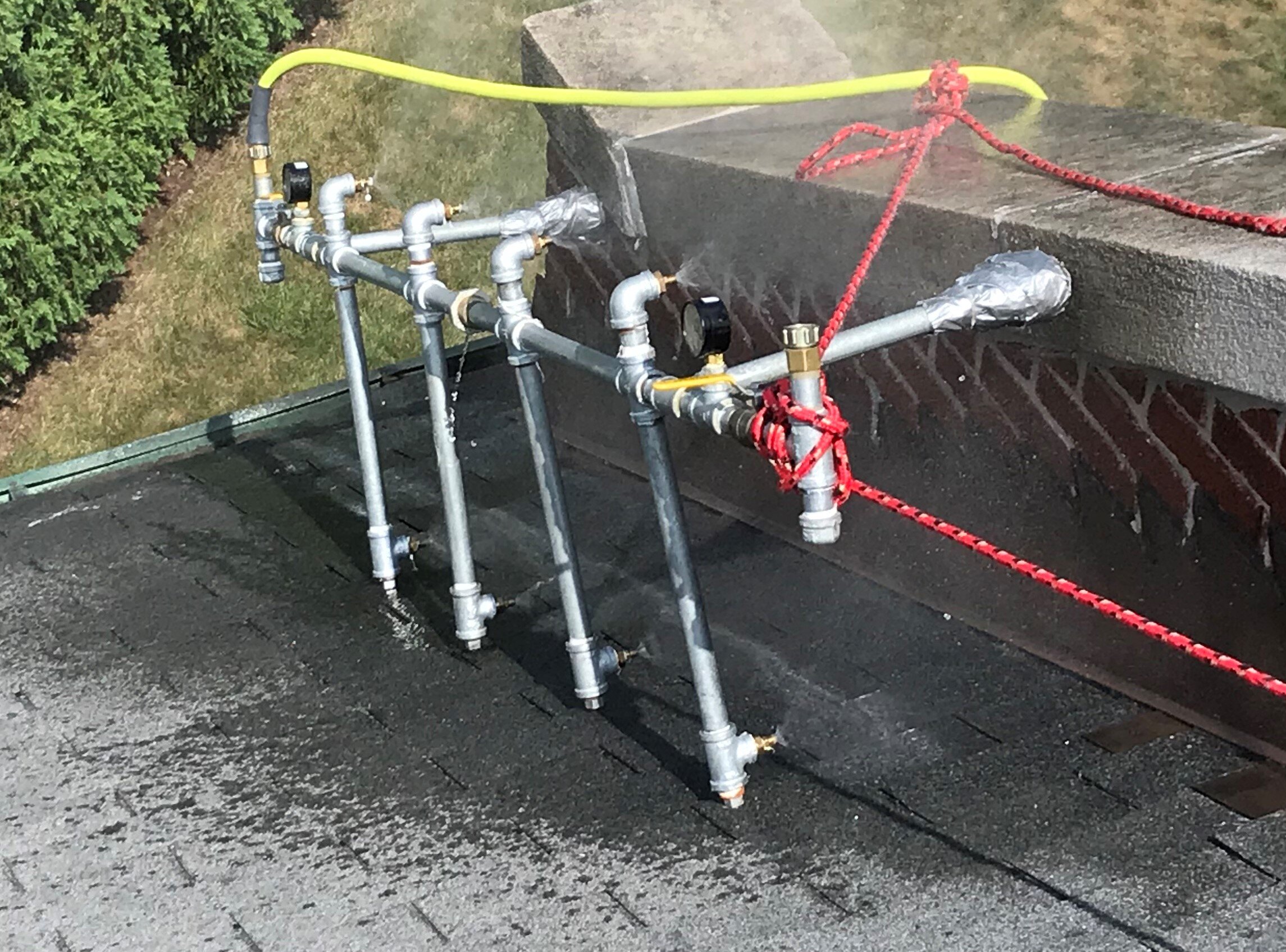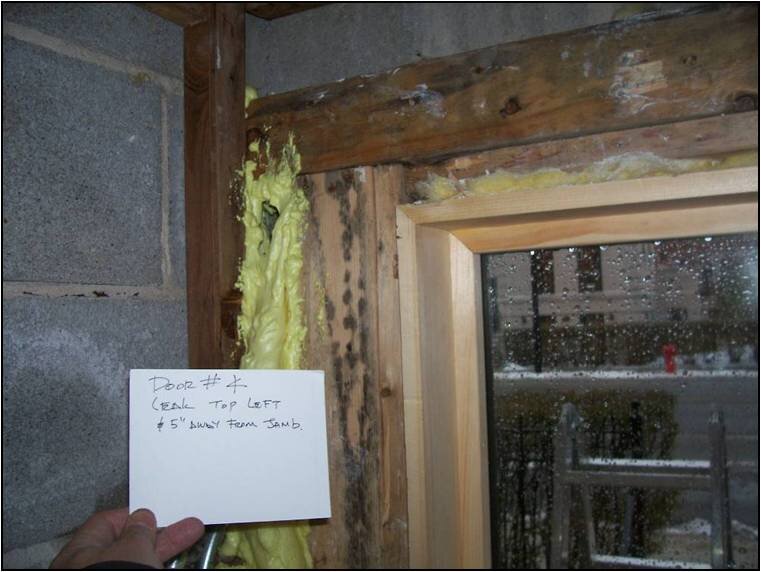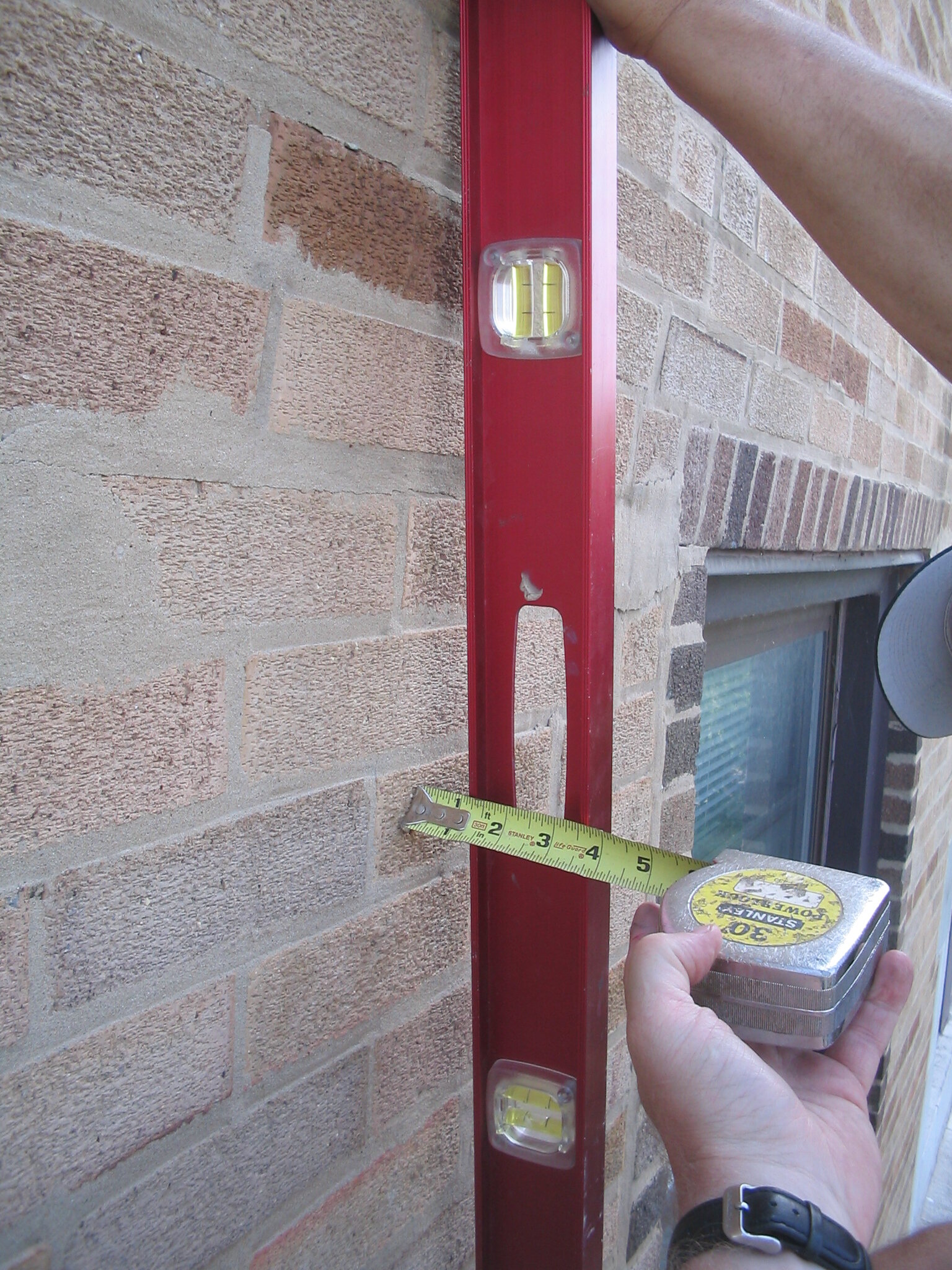Lincoln Park in Chicago: Indoor Mold and Water Leakage Investigation
PROBLEM
This complex, located in Lincoln Park in Chicago, includes 154 townhome units of which the exterior walls of all 17 buildings are constructed similarly of concrete and brick masonry, limestone, thin brick veneer, and cast stone. Copper sheet metal is used on the buildings at select projecting bay windows, turrets, and copings. Exterior steel-framed balconies exist at many of the units. At penthouse locations, the exterior walls are clad with a thin-brick veneer and an exterior insulation and finish system (EIFS).
SOLUTION
Review previous repair report and perform an extensive condition survey on all elevations.
Inspect the exterior brick veneer wall and the interior back up wall for evidence of deteriorations.
Perform an ASTM E 2128 water leakage investigation to determine the causes of the water leaks at the exterior wall of the condominium unit. Pressurized chamber is not to be used in this case.
Develop specifications and design repair details to remove mold and remedy the water infiltration condition.
Perform follow-up water testing to confirm the repairs completed by the contractor using specifications and drawings to ensure no water infiltration would develop.
VALUE
Discovered that in a windy rainstorm, water penetrated the exterior masonry mortar joints, traveled throughout the CMU joints, and exited into the interior drywall surface. Other issues that were discovered were that the flashing membrane was installed incorrectly and allowed water to enter. Documentation of findings, with corrective detailed drawings, was provided to aid in repairs and prevent further water infiltration.




